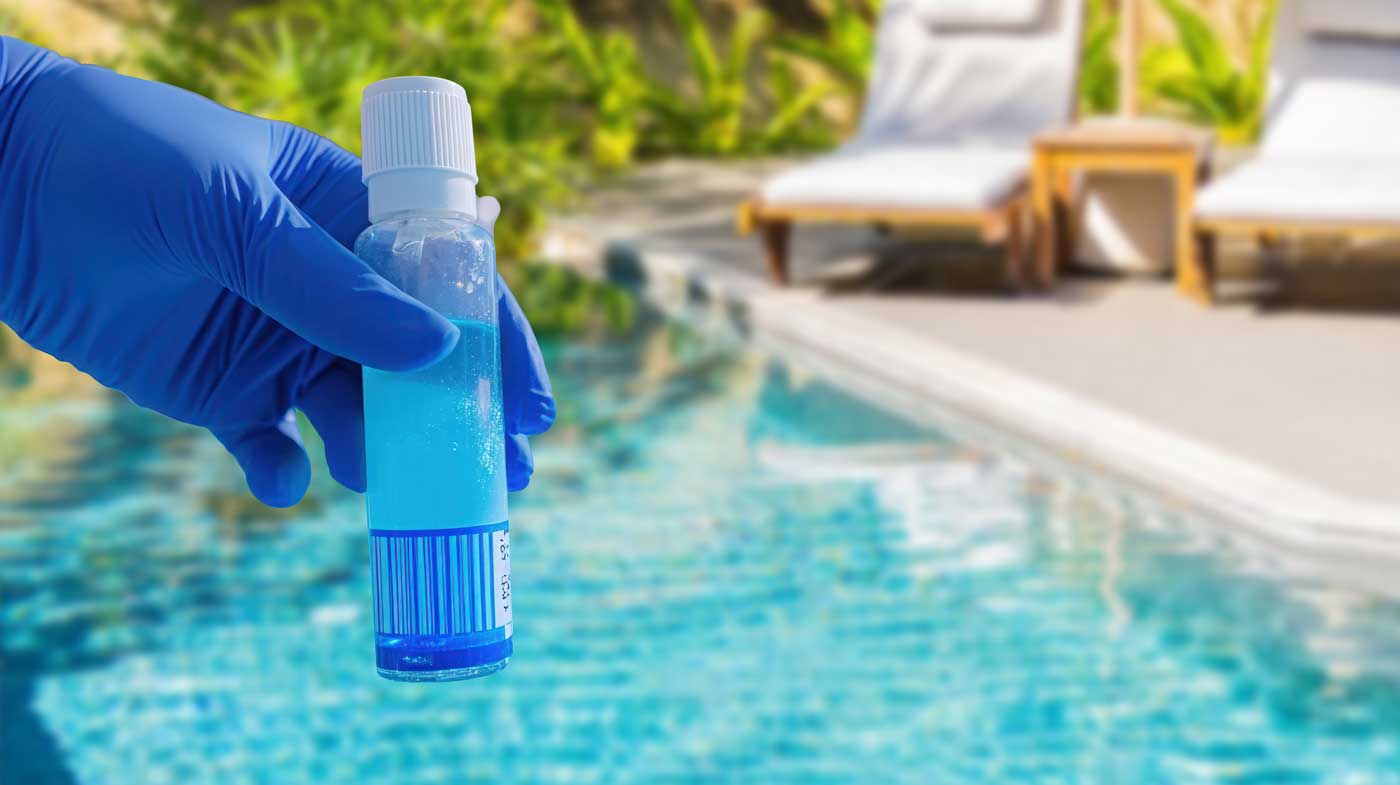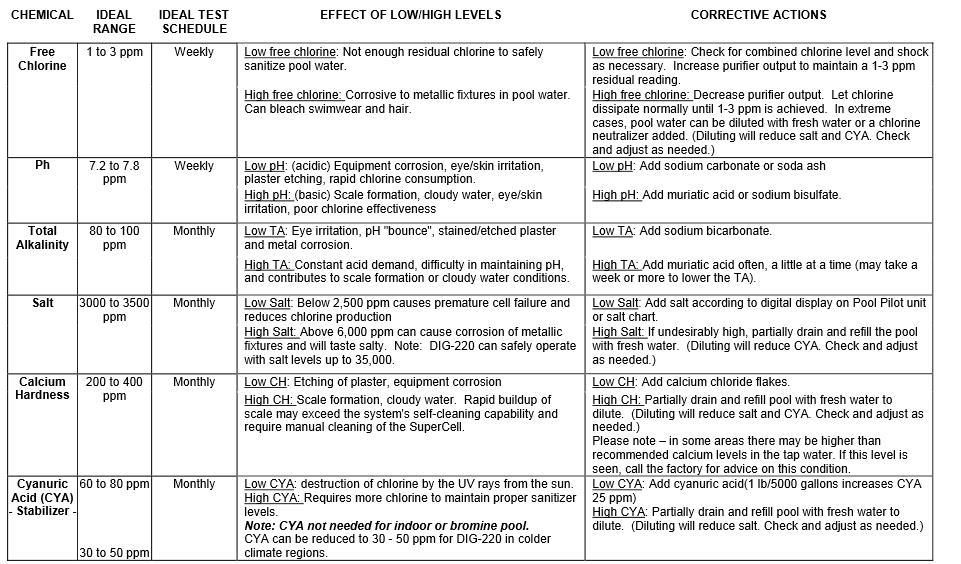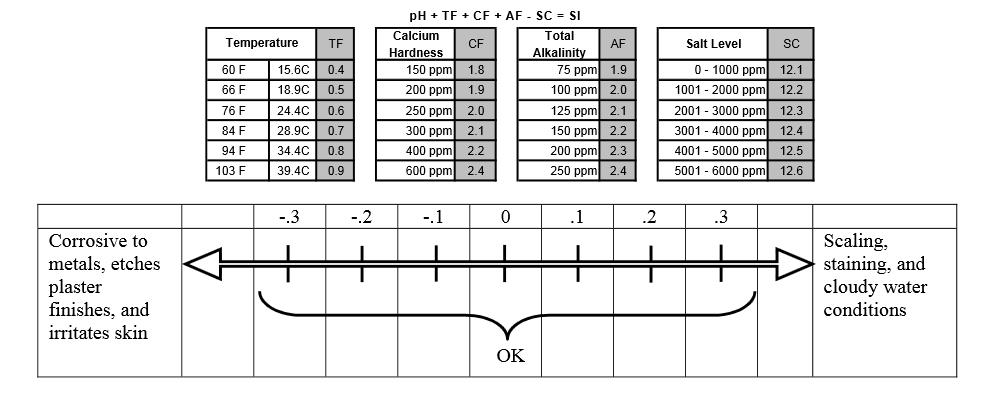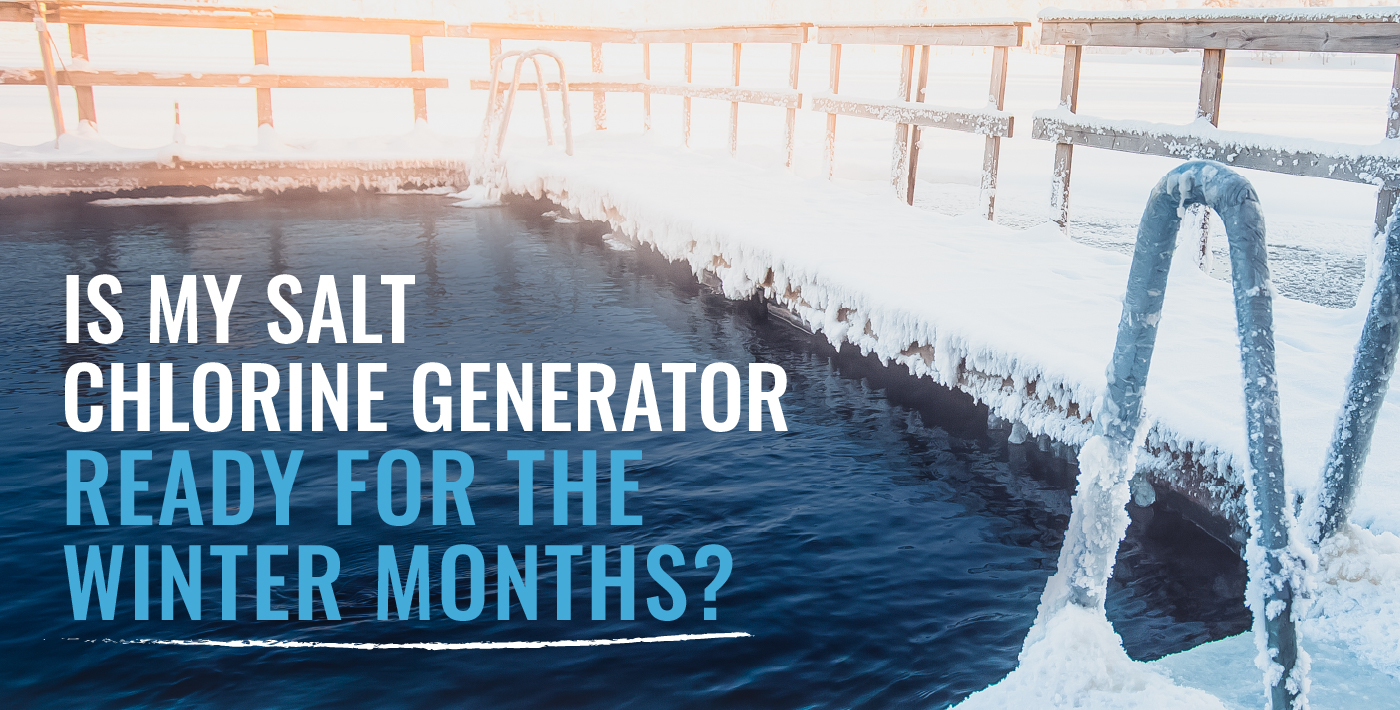Maintaining a clean and well-balanced swimming pool during rainy season can be a challenging task for your Salt Chlorine Generator because rainwater brings along contaminants that can disrupt the chemical balance and overall cleanliness of your pool water.

Also, warranties can be voided if improper water chemistry is determined to be the reason for the equipment damage to your swimming pool equipment. Below is a sample chart of the basic water chemistry, the ideal test schedule and the corrective actions that can be taken to rectify the imbalance.

Once your salt chlorine generator has been installed, and prior to starting up your salt system, you want to make sure that the water in your swimming pool is balanced (to the Saturation Index) and all chemicals are at the appropriate levels. This not only helps the unit perform better but it also helps optimize the life of generator’s cell.
Also, warranties can be voided if improper water chemistry is determined to be the reason for the equipment damage to your swimming pool equipment. Below is a sample chart of the basic water chemistry, the ideal test schedule and the corrective actions that can be taken to rectify the imbalance.
![]() It is highly recommended that you take a sample of your swimming pool water to your local pool professional and have it tested for the Saturation Index, as most professional will have the equipment to calculate for this. What is the Saturation Index? The saturation index is the formula used to predict the calcium carbonate saturation of water, which is, if your water is precipitating, dissolving, or is in equilibrium with calcium carbonate.
It is highly recommended that you take a sample of your swimming pool water to your local pool professional and have it tested for the Saturation Index, as most professional will have the equipment to calculate for this. What is the Saturation Index? The saturation index is the formula used to predict the calcium carbonate saturation of water, which is, if your water is precipitating, dissolving, or is in equilibrium with calcium carbonate.
Water is properly balanced if the SI (Saturation Index) is 0 ± 0.3., If SI is greater than 0.3, scaling and staining will occur. If SI is less than -0.3, then the water could be corrosive to metallic fixtures and aggressive in some plaster surfaces and vinyl liners.
When the SI (Saturation Index) is too high or low it can also cause damage to the cell, pool finish or your swimming pool equipment. The basic rule is, high calcium concentration, total dissolved solids, pH, and alkalinity all promise a greater tendency for scale. Scaling potential also increases with higher temperatures.
Please take a look at the chart below it can help you determine your swimming pool water balance. You should always test for pH, Temperature, Calcium Hardness, Total Alkalinity, and Salt Levels.
Remember: pH + TF + CF + AF – SC = Saturation Index.

As you can see, proper water balance is imperative to maintaining and extending the life of your salt chlorine generator and will not void your manufacturer’s warranty. For more information about the warranty of your system please consult you manufacture’s manual or feel free to leave any questions or feedback you may have.


It would be nice to see a video of how to scroll through and change or see what salt levels are. or any other
measurments this copilot can tell you.
Hi Mark,
If you have a copilot, you also have a chlorinating box; i.e. Nano or Digital. Test Pool Pilot will show you the salt reading, the temperature reading, and the volts/amps at the cell. To run Test Pool Pilot, press the menu button and when Test Pool Pilot appears on the screen press select.
If you have any questions, please call us at 727-823-5642.
Thanks,
Mark
AutoPilot Tech Support